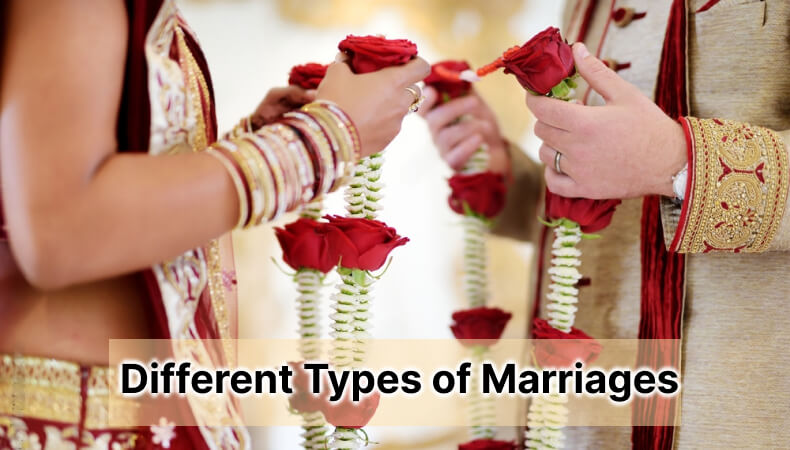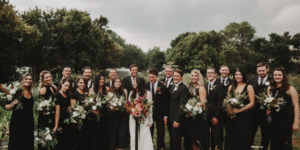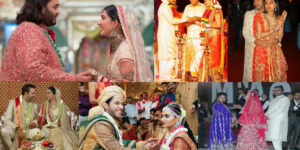Marriage, a timeless union of hearts and souls, has taken diverse forms across cultures and civilizations throughout history. Marriage has continually evolved from the grandiose ceremonies of royal dynasties to the intimate unions of kindred spirits, embracing a rich tapestry of traditions and customs. Each society has woven its unique fabric of matrimonial practices, reflecting its beliefs, values, and societal norms.
Whether it be the elaborately arranged marriages of ancient civilizations, the love-driven unions of the modern era, or the open-minded partnerships of contemporary societies, the kaleidoscope of different marriage types illustrates the beautiful and ever-changing mosaic of human connections and commitments.
Which Type of Marriage is Best
The “best” type of Marriage ultimately depends on the individuals involved and their unique needs, values, and circumstances. There is no one-size-fits-all answer, as every kind of Marriage has strengths and challenges. Traditional monogamous marriages provide a strong foundation for emotional intimacy and commitment. Open marriages may work for those who prioritize freedom and open communication. Arranged marriages can be successful when couples develop love and respect over time.
Same-sex marriages celebrate love and equality, breaking down barriers. Ultimately, the key to a successful marriage lies in mutual love, respect, trust, communication, and a willingness to adapt and grow together, regardless of the chosen Marriage.
Different Types of Marriage List
1. Traditional Arranged Marriage
Traditional arranged Marriage, a cultural practice with deep-rooted traditions, involves unionizing two individuals selected by their families or community. Contrary to misconceptions, it is not a forced marriage but rests on mutual consent and respect. Families seek compatibility regarding values, social status, and financial stability to forge lasting bonds.
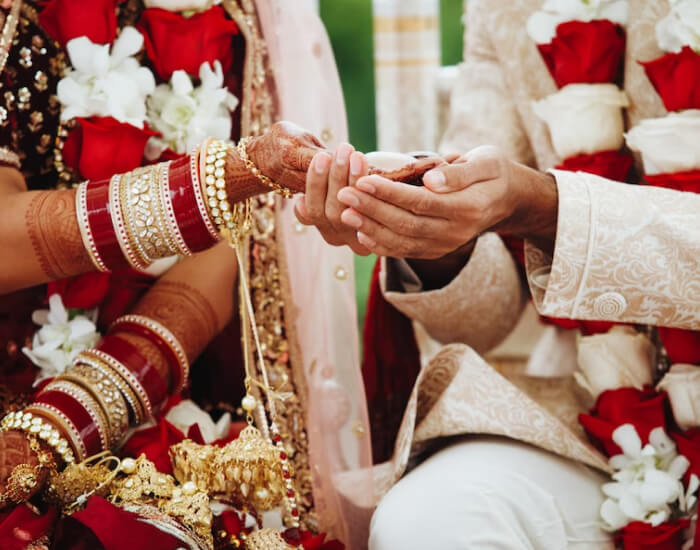
Often adorned with elaborate ceremonies and rituals, this time-honored institution reflects the collective wisdom of generations, valuing family cohesion and preserving cultural heritage. While modern societies witness a shift towards more autonomous partnerships, traditional arranged marriage continues to thrive in many parts of the world, embodying a unique expression of love and commitment. It’s one of the oldest types of marriage.
2. Interfaith Marriage
Interfaith Marriage, a beautiful union of two individuals from different religious backgrounds, transcends the boundaries of faith to celebrate love’s diversity. In a world where cultures intertwine, these marriages embody tolerance and acceptance. Couples navigate the complexities of blending their distinct beliefs, customs, and practices, enriching each other’s lives through shared experiences.
Such unions foster a profound understanding of various faiths and promote community harmony. However, they may also encounter challenges arising from societal prejudices or differences in religious traditions. Nonetheless, interfaith marriages are powerful examples of unity, demonstrating that love can bridge divides and create a bond more potent than any religious dissimilarities.
3. Companion-Based Marriage
Companion-based Marriage, a modern concept gaining popularity, centers on the foundation of companionship and emotional connection between partners. In this type of Marriage, individuals seek a partner with whom they share common values, interests, and mutual respect. The focus is building a solid friendship and emotional bond before considering other factors.

Companionship becomes the cornerstone of the relationship, supporting each other’s personal growth and aspirations. While physical attraction is not dismissed, the emphasis lies in nurturing a deep and meaningful connection that withstands the test of time. Companion-based marriages embrace the notion that true love is grounded in genuine friendship, creating a lasting and fulfilling union for the couple. It’s one of the types of modern marriage.
4. Common-law Marriage
Common-law Marriage is a unique form of marital status recognized in some jurisdictions, where couples cohabitate and live together in a committed relationship without undergoing a formal legal wedding ceremony. Over time, certain jurisdictions recognize these unions as legally equivalent to traditional marriages, entitling couples to similar rights and responsibilities.
The eligibility criteria for common-law Marriage often include factors like cohabitation for a specific period and presenting themselves as a married couple in the community. While it offers certain legal protections, it may also present complexities, especially if the relationship dissolves, as common-law spouses might need legal intervention to address property division and support matters.
5. Independent Or Disengaged Marriage
An independent or disengaged marriage is an unconventional form of marital arrangement where partners choose to maintain significant autonomy and personal space within the relationship. In such marriages, individuals prioritize their individuality, careers, and personal interests while acknowledging their commitment to each other. They may live separately, have separate finances, and make decisions independently.

While this arrangement allows for personal growth and freedom, maintaining a healthy emotional connection requires strong communication and understanding. Independent marriages challenge conventional norms and redefine the boundaries of partnership, emphasizing the importance of self-fulfillment while fostering mutual support and respect between partners. It’s one of the types of modern marriage.
6. Monogamous Marriage
Monogamous Marriage, a widely recognized form of Marriage, is based on the commitment between two individuals to remain exclusive and devoted to each other throughout their lives. Both partners pledge fidelity, emotional support, and companionship in this traditional union, fostering a deep and intimate connection.

Monogamous marriages are often rooted in cultural and religious beliefs, emphasizing the sanctity of the union and the importance of family stability. Such marriages provide a sense of security, trust, and emotional intimacy that allows couples to build a strong foundation and face life’s challenges together, making it one of the enduring and cherished forms of marital relationships. It’s one of the oldest types of marriage.
7. Same-Sex Marriage
Same-sex marriages are becoming increasingly accepted in many countries around the world. This progressive social change has been a long-standing demand of LGBTQ+ individuals and their supporters for decades. Yet, recently, some governments have made same-sex marriage legal.
Same-sex couples across all cultures can now partake in the same marital rights and privileges as opposite-sex spouses, including obtaining expected tax benefits, house ownership, having children through assisted reproduction techniques or surrogacy services, and entering into medical decisions on behalf of one’s partner–to name just a few examples.
As this form of union continues to become more widely embraced globally, we must ensure that equal protection under the law is extended with fair taxation policies, regardless of the additional complexity related to administering these measures. Thoughtful legislation, together with increased public acceptance, will assure that members from different backgrounds may express love without discrimination while at the same time receiving proper recognition from their respective societies!
8. Parenting Marriage
Parenting marriage is an evolving concept that emphasizes co-parenting as the primary purpose of the Marriage rather than a romantic or emotional connection between partners. In this form of union, individuals enter into a marriage with the primary goal of raising children together, irrespective of romantic involvement. The partners may share living arrangements and responsibilities related to child-rearing while maintaining separate romantic lives. It’s one of the types of modern marriage.

Parenting marriages are chosen by individuals who value the stability and support of a two-parent household for their children but may not wish to pursue a traditional romantic relationship. This unconventional approach to Marriage challenges societal norms and places the well-being of the children at the forefront.
9. Polygamous Marriage
Polygamous Marriage is a marital arrangement where one individual has multiple spouses simultaneously. Commonly practiced in some cultures and historical contexts, polygamy takes two primary forms: polygyny (one man having multiple wives) and polyandry (one woman having multiple husbands). The motivations behind polygamous marriages can vary, from cultural and religious beliefs to economic and social reasons.
While such unions can provide a sense of family and community, they can raise concerns about gender equality and individual rights. Modern societies often regulate or prohibit polygamous marriages, but in some regions, it continues to be a customary practice, reflecting the diverse perspectives on Marriage worldwide. It’s one of the types of modern marriage.
10. Left-handed Marriage
Left-handed Marriage, commonly known as a morganatic marriage, involves the union of two individuals from different social ranks, where one partner holds a higher social status. Meanwhile, the other occupies a lower or unequal position. This type of Marriage has historically been prevalent in societies with strict social hierarchies and class distinctions.
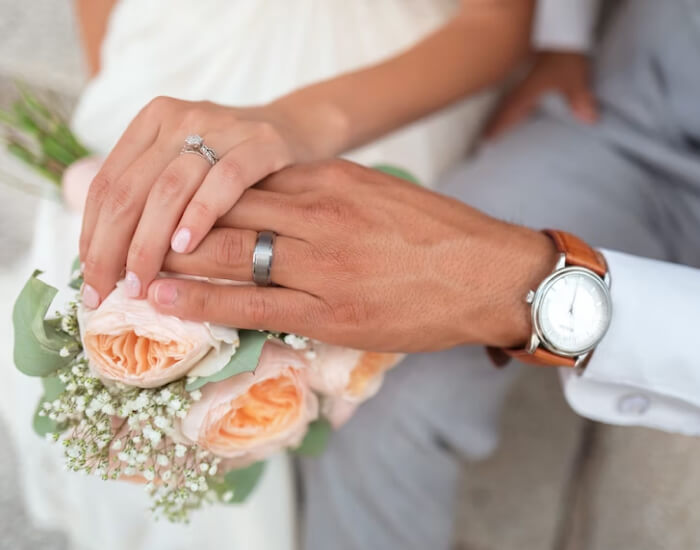
In a left-handed marriage, the partner of higher social standing may face disapproval or opposition from their family or society due to the perceived disparity. As a result, Marriage often carries certain restrictions, such as the lower-ranking partner not having access to titles, privileges, or inheritance rights. Left-handed marriages have showcased love transcending societal norms and standing the test of time despite the challenges.
11. Interracial Marriage
Interracial Marriage, a union between individuals of different racial or ethnic backgrounds, is a beautiful celebration of love that crosses cultural boundaries. This form of Marriage has faced historical and societal challenges rooted in prejudice and discrimination. However, as societies progress, interracial marriages have become more accepted, promoting inclusivity and diversity.
Such unions enrich lives by fostering respect for and understanding of diverse cultures, traditions, and customs. They offer an opportunity to create a harmonious blend of values and beliefs while also contributing to breaking down racial barriers and promoting social cohesion. Interracial marriages epitomize the power of love in transcending superficial differences and embracing the shared humanity that unites us all.
12. Secret Marriage
A clandestine or private marriage is a union where the couple keeps their Marriage concealed from family, friends, or the public. This can be due to different reasons, like cultural, religious, or social factors. Couples may choose secret marriages to avoid disapproval or conflicts or maintain personal privacy.

However, such unions may need help in terms of legal recognition and financial benefits, especially if the secrecy prevents proper documentation. While secret marriages can be a choice for some, open communication and understanding are essential to navigate potential complexities in the long run. It’s one of the unique types of marriage.
13. Shotgun marriage
Unlike most planned unions, a shotgun marriage occurs when a couple decides to tie the knot due to an unplanned pregnancy. Facing societal pressure and cultural norms that frown upon having children before Marriage, some individuals may choose this path to salvage their reputation or avoid embarrassment to their families.
While not always the ideal beginning, a shotgun marriage can lead to unique challenges and opportunities for growth. Couples may embark on building a strong and loving family despite unexpected circumstances. Communication, mutual support, and commitment in navigating life’s surprises and embracing parenthood together. It’s one of the unique types of marriage.
14. Love marriage
Love marriage is a heartwarming celebration of affection and choice, where two individuals decide to marry based on mutual love and respect for each other. In contrast to arranged marriages, love marriages are primarily driven by the couple’s emotional connection and personal preferences. They symbolize the freedom to choose a life partner based on shared values, interests, and compatibility.
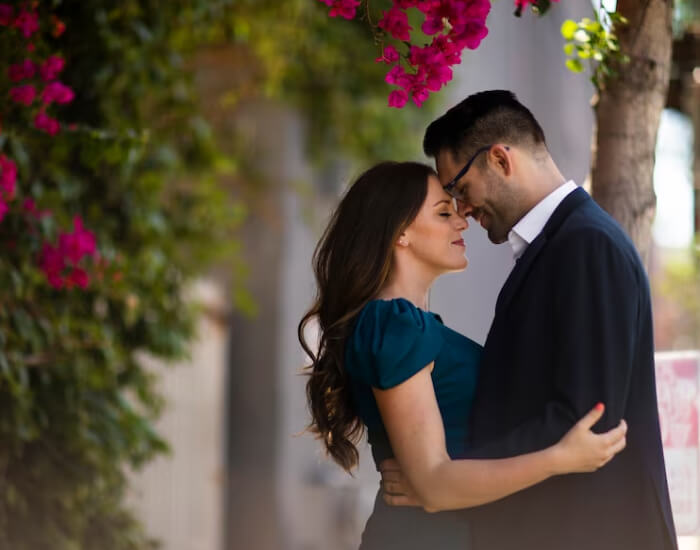
Love marriages exemplify the belief in the power of love to overcome societal boundaries, making them a common practice in many modern societies. Such unions embody the essence of romance, trust, and companionship, laying the foundation for a lifelong journey filled with love and understanding. It’s one of the oldest types of marriage.
15. Convenience marriage
True to its name, a convenience marriage is a union where two individuals decide to marry for practical or financial reasons rather than love. Societal expectations, financial stability, immigration benefits, or inheritance considerations often drive this type of Marriage. Unlike love marriages, convenience marriages may lack the deep emotional connection that characterizes romantic unions.
Instead, they prioritize practicality and mutual advantages. While these marriages may fulfill specific external needs, they can present challenges regarding emotional fulfillment and long-term compatibility. Open communication and a shared understanding of the arrangement are crucial in navigating the complexities that arise in convenience marriages.
16. Group Marriage
Group marriage, or polyamorous or communal marriage, is an unconventional marital arrangement where multiple individuals form a loving and committed partnership. In this unique setup, all group members are considered equal partners, sharing emotional, financial, and domestic responsibilities.
Group marriages challenge traditional notions of monogamy, embracing the idea that love and intimacy can be shared among multiple people. Such unions prioritize open communication, trust, and consent among all members. While group marriages can foster a strong sense of community and support, they require a high level of communication and emotional maturity to address the complexities of managing multiple relationships within the group.
17. Open Marriage
Open Marriage, a form of consensual non-monogamy, is an arrangement where both partners agree to have the freedom to engage in romantic or sexual relationships outside the Marriage. Unlike traditional monogamous unions, open marriages prioritize mutual trust, communication, and open marriage. Couples may explore this option to embrace their desires, explore their sexuality, or seek emotional connections with others while maintaining their primary commitment to each other.
This non-traditional approach challenges societal norms, emphasizing individual freedom and autonomy within the Marriage. While it can lead to fulfilling experiences and personal growth, open marriages also demand clear boundaries, honesty, and ongoing communication to ensure all parties’ emotional well-being and happiness.
18. Proxy Marriage
A proxy marriage, also known as a “marriage by proxy,” is a distinctive marital arrangement where one or both partners are not physically present during the wedding ceremony. Rather, they are described by proxy, typically a stand-in or a legal representative, who participates in the ceremony in their place.

This type of Marriage is often used when one partner cannot attend due to military service, immigration issues, or other logistical challenges. Proxy marriages can be legally recognized in certain jurisdictions, but the rules and requirements vary. While they offer a solution for couples facing distance or time constraints, they can present challenges regarding emotional connection and communication between partners.
19. Child Marriage
Child marriage is a deeply concerning and harmful practice involving the Marriage of children below the age of 18 years. This traditional custom persists in some regions due to traditional, financial, and societal aspects. However, child marriage poses significant risks to young girls and boys’ physical, emotional, and psychological well-being. It often results in early pregnancies, limited access to education, and increased vulnerability to abuse and poverty.
Efforts to combat child marriage include legal reforms, awareness campaigns, and community engagement to promote girls’ education and empower young individuals. Eradicating child marriage is crucial in ensuring children’s safer and brighter future, safeguarding their rights, and allowing them to reach their full potential.
20. Time-bound Marriage
Time-bound Marriage, or temporary or fixed-term Marriage, is a unique and unconventional marital arrangement where the couple agrees to be married for a specified duration. Unlike traditional marriages intended to last a lifetime, time-bound marriages have a predetermined end date. This type of union is practiced in some cultures and religious traditions, where it serves specific purposes, such as companionship during travel, fulfilling cultural obligations, or addressing temporary circumstances.
While time-bound marriages may not be as common as lifelong unions, they highlight the flexibility and diverse nature of human relationships, where individuals can choose the duration of their commitment based on their specific needs and circumstances.
21. Covenant Marriage
Covenant marriage is a distinctive and legally binding form of marital contract introduced in certain jurisdictions that imposes stricter requirements and conditions for obtaining a divorce. Couples entering a covenant marriage commit to a higher level of dedication, emphasizing pre-marital counseling, mandatory waiting periods, and limited grounds for divorce. Couples with strong religious beliefs often seek this form of Marriage or desire a more secure and enduring commitment.
Covenant marriages strive to reduce divorce rates by encouraging open communication, counseling, and reconciliation efforts before considering divorce. While not universally recognized, they reflect a conscious effort to strengthen the institution of Marriage and foster lasting and meaningful unions.
22. Ghost Marriage
Ghost marriage, also known as spirit marriage, is a fascinating and ancient cultural practice in some societies, where a living person marries a deceased individual. This ritualistic union serves various purposes, including honoring the deceased’s spirit, maintaining family lineage, and preserving property rights. In some cases, the deceased’s soul is believed to benefit from having a spouse in the afterlife.

The living person in a ghost marriage may marry a symbol, photograph, or even perform the ceremony with an effigy representing the deceased. This unique practice illustrates the diverse and intricate beliefs surrounding Marriage and the significance of ancestral connections in specific cultural contexts.
23. Temporary Marriage (Nikah Mut’ah)
Temporary Marriage, also known as Nikah Mut’ah, is a unique and controversial form of Marriage in Islamic tradition. This type of Marriage is contract-based and has a fixed duration, agreed upon by both partners at the time of the marriage contract. Unlike traditional permanent marriages, which require no end date, temporary marriages have a specified timeframe, ranging from hours to several years.
This practice is particularly prevalent in certain sects of Islam and is subject to varying interpretations and acceptance within the Muslim community. While some consider it valid and beneficial for specific circumstances, others view it as controversial and against Islam’s spirit of permanent Marriage. Temporary Marriage reflects the diversity of Islamic practices and beliefs concerning Marriage and its interpretation.
In conclusion, the different types of Marriage reflect human relationships’ richness and love’s multifaceted nature. Whether arranged or love marriages, each form holds unique significance and cultural context. Same-sex marriages celebrate the triumph of inclusivity and equality, while open marriages challenge conventional norms.
Interfaith unions embrace the beauty of diversity, while convenience and convenience marriages highlight the practical aspects of matrimony. Whether monogamous, polygamous, or temporary, each type carries its own set of challenges and rewards. Ultimately, the success of any marriage lies in the foundation of love, communication, and respect that binds two hearts together, shaping a lifelong journey of companionship and growth.

